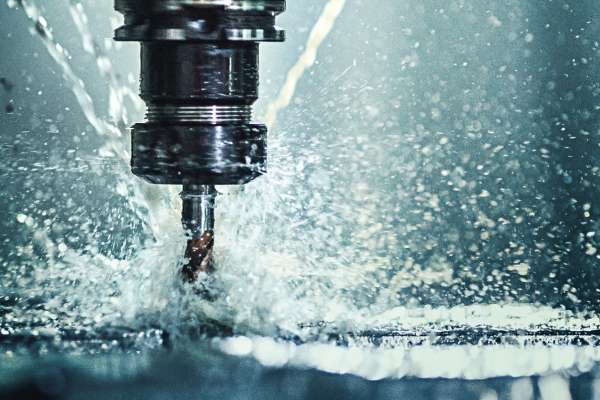
Oct 12,2023
CNC (Computer Numerical Control) machines have revolutionized manufacturing processes across various industries. These machines offer unparalleled precision and automation, making them indispensable in crafting intricate metal parts to engraving wood designs. However, one critical question often plagues individuals and businesses: Is building or buying a CNC machine cheaper? In this article, we will delve into the complexities of this decision, providing a comprehensive guide to help you make an informed choice.
Before we dive into the build vs. buy debate, it's essential to understand the components that make up a CNC machine. A CNC machine typically consists of several key parts, each contributing to its functionality.
Frame and Structure: The frame provides the CNC machine's structural integrity, ensuring operation stability.
Motors and Drives: Motors move the machine along the specified axes, while drives provide power.
Control System: The control system, often a computer, interprets design files and translates them into precise movements and tool actions.
Cutting Tools: Cutting tools vary depending on the specific application but are crucial for shaping and carving materials.
To assess whether it's cheaper to build or buy a CNC machine, it's essential to consider the costs associated with each of these components.
Material Costs: Building your CNC machine means purchasing the raw materials for the frame and structure. Depending on your design, this includes metal, aluminum, or even wood.
Technology and Electronics: Building a CNC machine involves investing in motors, drives, control systems, and electronic components.
Assembly and Labor: If you choose to build, you must invest your time or hire skilled labor to assemble the machine correctly.
Building a CNC machine offers several advantages, which may make it a viable choice for some individuals or businesses:
Customization Options: Building your CNC machine allows you to tailor it to your needs. You can design a machine that perfectly fits your intended applications.
Learning Experience: Building a CNC machine can be a valuable educational journey. You gain hands-on experience and a deeper understanding of how these machines work.
Potential Cost Savings: While this is not always the case, building a CNC machine can be cost-effective if you have the expertise to manage the project efficiently.
Despite the advantages, building a CNC machine comes with its own set of challenges:
Technical Expertise Required: Building a CNC machine demands a good understanding of mechanical and electrical engineering. Without the requisite knowledge, you might encounter difficulties during the assembly process.
Time-Consuming Process: Constructing a CNC machine can be time-consuming. If time is of the essence for your projects, buying might be a more suitable option.
Potential for Mistakes and Redos: Building your CNC machine leaves room for error. Mistakes in design or assembly can lead to costly redos and delays.
Buying a CNC machine from a reputable supplier can be a wise choice for many:
Ready-to-Use Solution: Purchased CNC machines are ready for operation upon delivery. This can save you significant setup time.
Established Reputation and Support: Reputable manufacturers offer customer support and warranty, ensuring reliability and maintenance.
Time and Effort Savings: Buying a CNC machine eliminates the need for design and assembly, saving you considerable time and effort.
When opting to buy a CNC machine, there are important considerations:
Budget Allocation: CNC machines come in various price ranges. Determine your budget and select a machine that fits your financial constraints.
Required Specifications: List the specifications you need for your projects, such as cutting area, precision, and compatibility with design software.
Supplier Reputation and Reviews: Research potential suppliers thoroughly. Read reviews, ask for recommendations, and ensure the supplier is known for quality and customer support.
Now that we've looked at the pros and cons of both options let's delve into a detailed cost comparison.
When building a CNC machine, your expenses will include:
Material Costs: The type of materials you choose will affect your budget significantly. High-quality materials will increase costs.
Technology and Electronics: Sourcing motors, drives, control systems, and electronics add to your expenses.
Assembly and Labor: If you lack the skills to assemble the machine, you must pay for skilled labor.
When buying a CNC machine, the costs primarily involve:
Initial Investment: This includes the machine's purchase price, which varies based on specifications and brand.
Long-term Maintenance and Upkeep: Consider maintenance costs, including regular servicing and potential repairs.
Potential Additional Costs: Accessories, tooling, and software may be necessary, contributing to your expenses.
We'll also gather insights from those who chose to buy CNC machines:
User Experiences: Share testimonials and stories of users who found buying a CNC machine the right decision for their projects.
Pros and Cons: Outline the advantages and disadvantages that these users have encountered.
In the final sections of this article, we'll help you make an informed decision:
Budget Constraints: Determine your budget and assess whether building or buying aligns with your financial resources.
Time Frame: Consider your project deadlines. Building a CNC machine takes time while buying one provides immediate access to a working tool.
Technical Expertise: Evaluate your skills and knowledge in mechanics and electronics. This will influence the success of your DIY project.
We'll offer tailored recommendations based on common scenarios:
Hobbyists and Small-Scale Users: What's the best option for those pursuing CNC as a hobby or for small-scale projects?
Professional Workshops and Manufacturing Units: What makes more sense for businesses relying on CNC machines for production?
In conclusion, whether it's cheaper to build or buy a CNC machine depends on various factors, including your budget, technical expertise, and project requirements. Both options have merits and drawbacks, and the decision ultimately hinges on your needs. By carefully weighing the pros and cons and considering the real-world experiences of others, you can make an informed choice that suits your unique circumstances. Whether you embark on a DIY CNC project or opt for a pre-built solution, CNC machines remain a valuable asset in the realm of modern manufacturing.